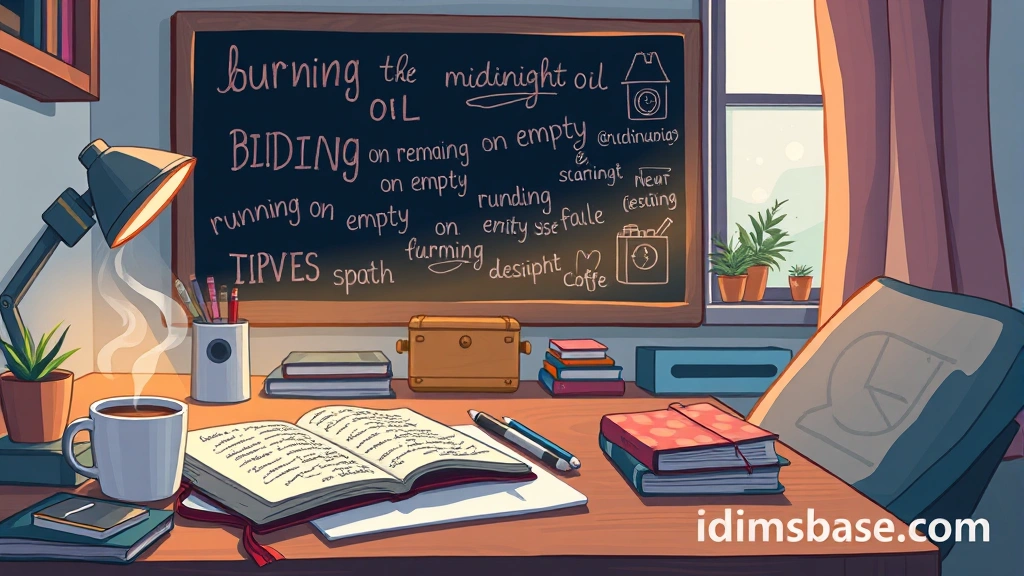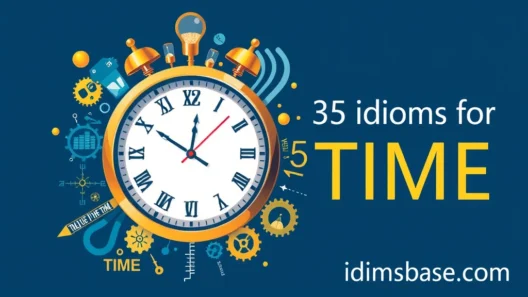Hey there, ever feel like you’re running on fumes, dragging your feet, or just plain done? We all know that feeling, right? That deep, bone-weary exhaustion that seeps into your very soul. But how do you really put that feeling into words without just saying "I'm tired" for the hundredth time?
Well, you're in luck! English is bursting with colorful, vivid idioms that perfectly capture every shade of fatigue, from a gentle weariness to total, utter collapse. Imagine being able to express exactly how you feel with a phrase that paints a picture, sparks a chuckle, or simply lets others know you're at your limit.
Get ready to supercharge your vocabulary and articulate your exhaustion like a pro! We're about to dive into 35 fantastic idioms for feeling tired. You'll be surprised how many you recognize and how many new ones you’ll want to add to your linguistic toolkit. Let’s get started!
35 Idioms for Feeling Tired
Ready to explore the wonderful world of weariness, one idiom at a time? Here are 35 expressive ways to say you're tired, ranging from mildly fatigued to completely wiped out.
-
Beat
- Meaning: Extremely tired, exhausted.
- Example: "After working a double shift, I was completely beat."
- Why it's great: Short, punchy, and universally understood.
-
Worn out
- Meaning: Very tired; exhausted from physical or mental effort.
- Example: "The kids played all day at the park and came home totally worn out."
- Why it's great: Evokes the image of something that's lost its freshness and energy.
-
Drained
- Meaning: Having no energy left; completely exhausted.
- Example: "That intense meeting left me feeling utterly drained."
- Why it's great: Like a battery with no charge left – very relatable!
-
Exhausted
- Meaning: Extremely tired.
- Example: "After the marathon, she was absolutely exhausted."
- Why it's great: A classic for a reason – direct and powerful.
-
Wiped out
- Meaning: Extremely tired.
- Example: "I spent the whole day cleaning the house and now I'm wiped out."
- Why it's great: Implies a sudden and complete loss of energy.
-
Run down
- Meaning: Tired and not in very good health.
- Example: "I've been feeling a bit run down lately, I think I need a break."
- Why it's great: Suggests a general lack of vitality, often due to stress or overwork.
-
Frazzled
- Meaning: Extremely tired and anxious; worn out from stress.
- Example: "After a week of non-stop deadlines, I was completely frazzled."
- Why it's great: Perfect for mental exhaustion combined with frayed nerves.
-
Dead on my feet
- Meaning: Extremely tired; so tired that you can barely stand.
- Example: "I've been up since 4 AM, I'm dead on my feet."
- Why it's great: A vivid image of being utterly spent.
-
Ready to drop
- Meaning: Extremely tired and about to fall asleep or collapse.
- Example: "After dancing all night, I was ready to drop."
- Why it's great: Conveys the immediate need for rest.
-
Done in
- Meaning: Completely exhausted.
- Example: "That hike really did me in; I'm totally done in."
- Why it's great: Simple, colloquial, and effective.
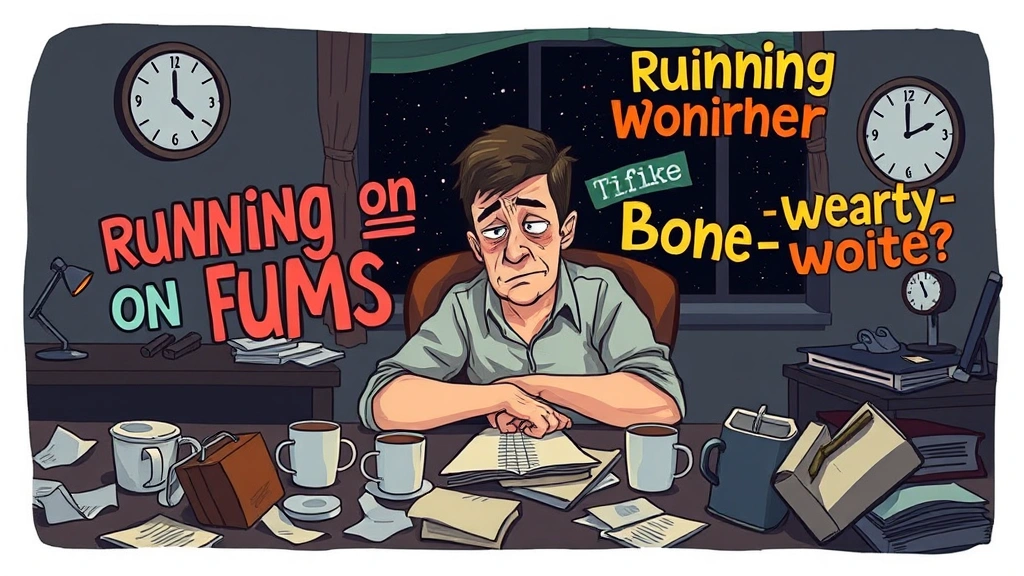
-
Knackered (British English)
- Meaning: Extremely tired.
- Example: "After the long journey, I was absolutely knackered."
- Why it's great: A popular, expressive term in British English.
-
Pooped (informal)
- Meaning: Tired.
- Example: "The little puppy played so hard, now he's all pooped out."
- Why it's great: A cute, informal way to describe mild to moderate tiredness.
-
Bagged (informal)
- Meaning: Very tired.
- Example: "After that intense workout, I feel completely bagged."
- Why it's great: Another quick, informal way to say you're tired.
-
Dog-tired
- Meaning: Extremely tired.
- Example: "He worked 14 hours straight and came home dog-tired."
- Why it's great: Evokes the image of a dog collapsing after a long day.
-
Shattered
- Meaning: Extremely tired, emotionally or physically.
- Example: "The news left her feeling completely shattered."
- Why it's great: Implies a profound level of exhaustion, often linked to emotional distress.
-
Busheled (US informal)
- Meaning: Very tired.
- Example: "I've been on my feet all day, I'm busheled."
- Why it's great: Less common, but fun to use if you want to sound unique.
-
Fagged out (informal, somewhat dated)
- Meaning: Exhausted.
- Example: "After helping him move, I was completely fagged out."
- Why it's great: A bit old-fashioned, but still understood.
-
Sleepy
- Meaning: Feeling a need to sleep.
- Example: "It's past my bedtime, I'm getting sleepy."
- Why it's great: The most basic and direct way to say you need sleep.
-
Droopy
- Meaning: Lacking energy; feeling weak or tired.
- Example: "By late afternoon, the flowers looked a bit droopy, and so did I!"
- Why it's great: A gentle way to describe a lack of perkiness.
-
Dragging
- Meaning: Feeling very tired and moving slowly as a result.
- Example: "I've been dragging all morning; I didn't get enough sleep."
- Why it's great: Perfectly describes that heavy, slow feeling.
-
Running on empty
- Meaning: Having no energy left; continuing to function despite extreme fatigue.
- Example: "I've been running on empty for days, I really need a break."
- Why it's great: A powerful metaphor of a car with no fuel.
-
Out on my feet
- Meaning: So tired you feel like you're going to collapse. Similar to "dead on my feet."
- Example: "After that double shift, I was completely out on my feet."
- Why it's great: Another vivid image of extreme fatigue.
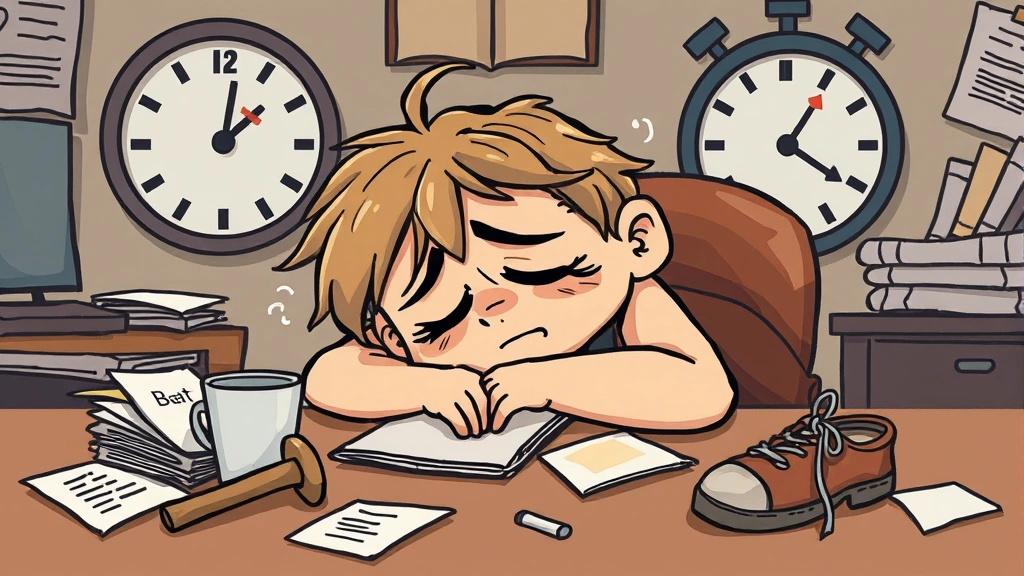
-
Burning the candle at both ends
- Meaning: Working or living too hard, so that you get very tired.
- Example: "She's been burning the candle at both ends with work and studying, no wonder she's exhausted."
- Why it's great: Explains why you're tired, not just that you are.
-
Feeling groggy
- Meaning: Tired and unable to think clearly.
- Example: "I felt groggy all morning after staying up late last night."
- Why it's great: Captures the mental fogginess that comes with lack of sleep.
-
Worn to a frazzle
- Meaning: Extremely tired and stressed.
- Example: "Dealing with all those complaints left me worn to a frazzle."
- Why it's great: An intensified version of "frazzled," emphasizing complete exhaustion.
-
Ready for bed
- Meaning: Tired and wanting to go to sleep.
- Example: "It's been a long day, I'm ready for bed."
- Why it's great: Simple, direct, and universally understood.
-
Zonked out (informal)
- Meaning: Deeply asleep or extremely tired.
- Example: "He was so tired he just zonked out on the couch."
- Why it's great: Implies a sudden and deep state of exhaustion or sleep.
-
Pancaked (informal)
- Meaning: Flattened by exhaustion.
- Example: "After that sprint, I was totally pancaked."
- Why it's great: A less common but evocative term, suggesting being squashed by tiredness.
-
Worn thin
- Meaning: Becoming irritable or stressed due to being tired or under pressure.
- Example: "Her patience was wearing thin after dealing with the noisy neighbors all week."
- Why it's great: Focuses on the mental and emotional toll of fatigue.
-
Feeling sluggish
- Meaning: Lacking energy or vigor; slow and lethargic.
- Example: "I woke up feeling sluggish and couldn't get myself moving."
- Why it's great: Describes the physical sensation of being slow and heavy.
-
Hit the wall
- Meaning: To suddenly become very tired and unable to continue an activity.
- Example: "I was running strong, but then I hit the wall at mile 20."
- Why it's great: Perfect for describing a sudden, sharp onset of extreme fatigue, often in physical activities.
-
Out cold
- Meaning: Deeply asleep or unconscious, often from exhaustion.
- Example: "He was so tired he was out cold as soon as his head hit the pillow."
- Why it's great: Emphasizes the deep, unresponsive nature of the sleep.
-
Can barely keep my eyes open
- Meaning: Extremely tired and struggling to stay awake.
- Example: "This lecture is so boring, I can barely keep my eyes open."
- Why it's great: A very relatable physical manifestation of tiredness.
-
Burnt out
- Meaning: Suffering from extreme physical or mental fatigue caused by overwork or stress.
- Example: "After years in that high-pressure job, she was completely burnt out."
- Why it's great: Suggests a prolonged state of exhaustion, often leading to a loss of motivation.
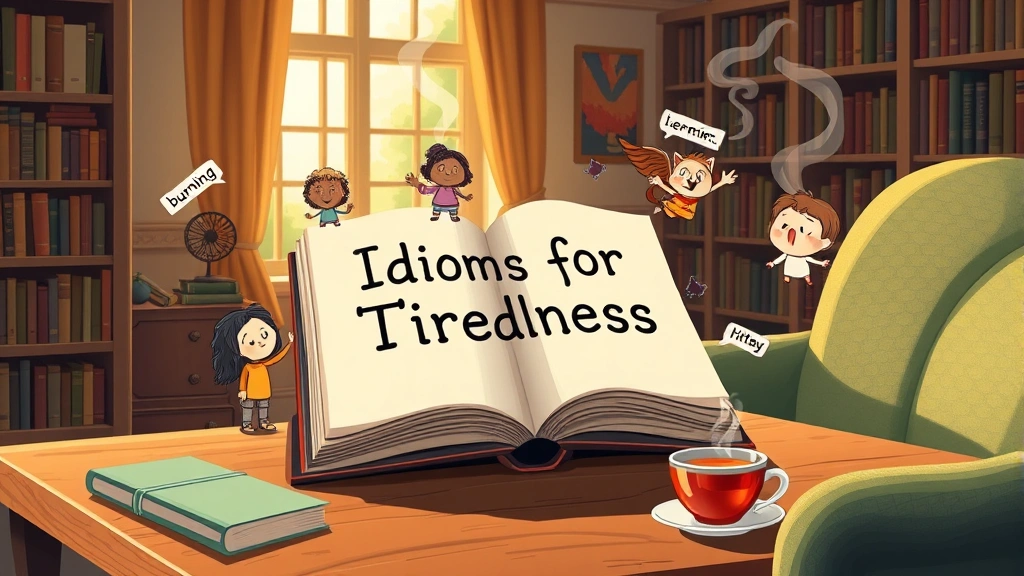
- Fizzled out
- Meaning: Gradually lost energy or enthusiasm.
- Example: "My initial excitement for the project has sort of fizzled out, and now I'm just tired."
- Why it's great: Describes a gradual decline in energy, often linked to motivation.
Frequently Asked Questions about Idioms for Tiredness
Got more questions about these expressive phrases? We've got answers!
Q1: Why are there so many idioms for being tired?
A1: That's a fantastic question! Think about it: tiredness is a universal human experience. We all feel it, from a little bit sleepy to absolutely dead on our feet. Because it's such a common and varied feeling, people throughout history have developed many creative ways to describe it. Idioms add color, humor, and a deeper level of understanding than simply saying "I'm tired." They allow us to convey the degree and type of exhaustion we're experiencing, making our language richer and more relatable.
Q2: Are these idioms appropriate for all situations?
A2: Not always! While many of these idioms (like "exhausted" or "sleepy") are perfectly fine for formal settings, some are more casual. For example, "knackered" or "pooped" are great for talking to friends or family, but you probably wouldn't use them in a professional presentation. "Dead on my feet" is quite strong and best reserved for situations where you want to emphasize extreme exhaustion. Always consider your audience and the context to choose the most appropriate idiom.
Q3: How can I remember all these idioms?
A3: Great question! It can feel like a lot at once. Here are a few tips:
- Start small: Pick 3-5 idioms that resonate with you and try to use them in your daily conversations.
- Context is key: Pay attention to how native speakers use them. Watch movies, read books, and listen to podcasts.
- Visualize: Many idioms create vivid mental images (like "burning the candle at both ends" or "dog-tired"). Connecting the idiom to an image can help it stick.
- Practice: The more you use them, the more natural they'll become! Try writing sentences using new idioms each day.
Q4: Do these idioms mean the exact same thing?
A4: While they all relate to tiredness, they often carry slightly different nuances, as you saw in the descriptions. For example, "drained" implies a complete loss of energy, while "groggy" focuses on mental fogginess. "Burnt out" suggests chronic exhaustion from prolonged stress, whereas "hit the wall" is a sudden, acute exhaustion. Understanding these subtle differences helps you choose the perfect idiom for the moment.
Q5: Can I combine these idioms?
A5: Sometimes, yes! You might say, "I'm so exhausted, I'm practically dead on my feet." However, be careful not to overdo it, as combining too many can sound unnatural or repetitive. Focus on using one strong idiom to convey your message effectively.
Key Takeaways
Wow, what a journey through the land of languid language! You've just explored 35 fantastic idioms to describe that universal feeling of being tired.
Here's what we've learned:
- More than "tired": English offers a rich tapestry of words to express every shade of fatigue, from mild sleepiness to utter exhaustion.
- Context is King: The best idiom depends on your audience and the situation. Choose wisely to make your message clear and impactful.
- Vivid Imagery: Many idioms paint a picture, helping others truly understand how you feel. Think "dog-tired" or "running on empty."
- Nuance Matters: While they all mean "tired," each idiom carries its own subtle meaning, reflecting different types or degrees of weariness.
- Practice Makes Perfect: Incorporate a few new idioms into your vocabulary each week, and you'll be expressing your exhaustion like a native speaker in no time!
So, the next time you're feeling like you've been "burning the candle at both ends" or are "dead on your feet," you'll have a whole arsenal of clever phrases to choose from. Go forth and articulate your weariness with style!



